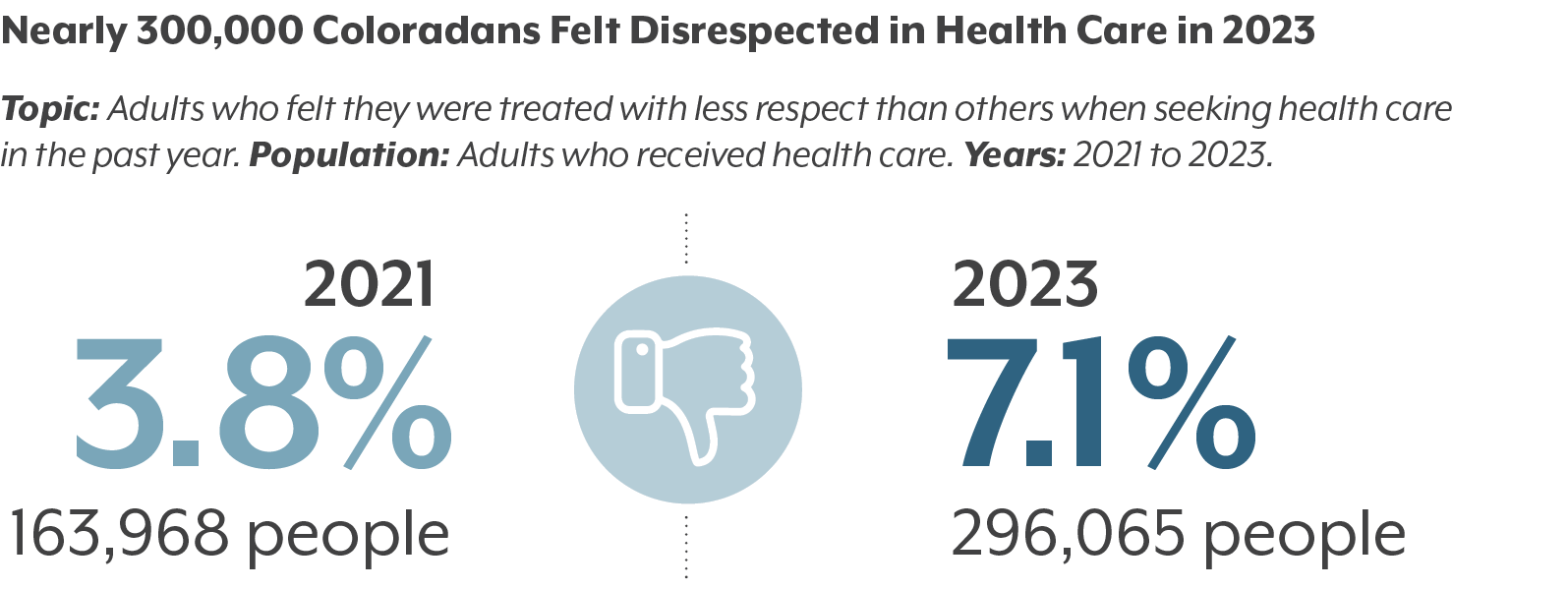In 2023, nearly twice as many Colorado adults reported disrespectful treatment in the medical system than in 2021 (7.1% versus 3.8%, respectively). This represented over 296,000 adults in 2023.
People of color were more likely than white Coloradans to report disrespectful treatment when getting care (7.7% versus 4.4%, respectively). The top reasons people felt disrespected were age (with young adults reporting the most discrimination), income, race, disability, and weight.
The CHAS asked people whether they felt they were treated with less respect or received services that were not as good as others when seeking health care. If they answered yes, the survey asked them why they felt this way.
Social context. Like many institutions in the 2020s, health care has been reflecting on its past and the issue of ongoing discrimination. New policies stress the importance of culturally competent care. However, the CHAS shows that groups that have suffered discrimination in the past are still feeling disrespect in the health care system.
Perceived reasons for disrespect:
- Race. Nearly one in 10 Black or African American Coloradans (9.7%) reported disrespect in health care for any reason. That’s more than double the rate of white Coloradans (4.4%). Hispanic or Latino Coloradans also reported higher levels of disrespect (5.8%). Of the respondents who reported disrespectful treatment, about a third (31.0%) said it was because of their race, while 21.7% said it was because of their culture.
- Age. Age was the most common reason people cited for being disrespected (38.4%). Young adults ages 18 to 25 were three times as likely than other age groups to say they felt disrespected for any reason. The wide disparity could show a greater willingness of young adults to speak up when they feel disrespected.
- Income. More than a third of people who felt disrespected (34.5%) said their income was the reason. People who make less than two times the poverty level ($60,000 for a family of four) were most likely to report disrespect for any reason. This group includes many Medicaid members.
- Ability. Adults living with a physical, mental, or emotional condition were five times as likely to report disrespect compared with adults who do not live with these kinds of conditions (15.9% and 3.5%, respectively). More than a quarter of the people who felt disrespected (28.8%) said it was because of a disability or physical, mental, or cognitive condition.
- Weight. A quarter of people who felt disrespected (25.4%) said it was because of their weight.
Intersecting identities. Taken together, this information tells us someone who is younger, has a lower income, is a person of color, and has a disability would be much more likely to have a negative experience when trying to access health care services.

